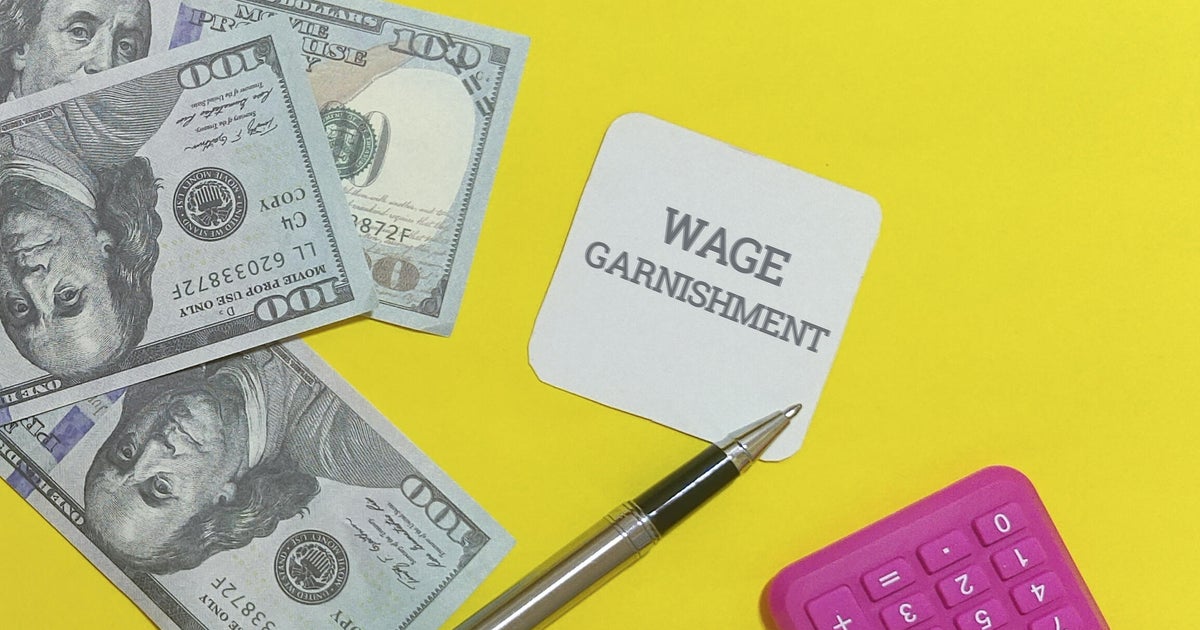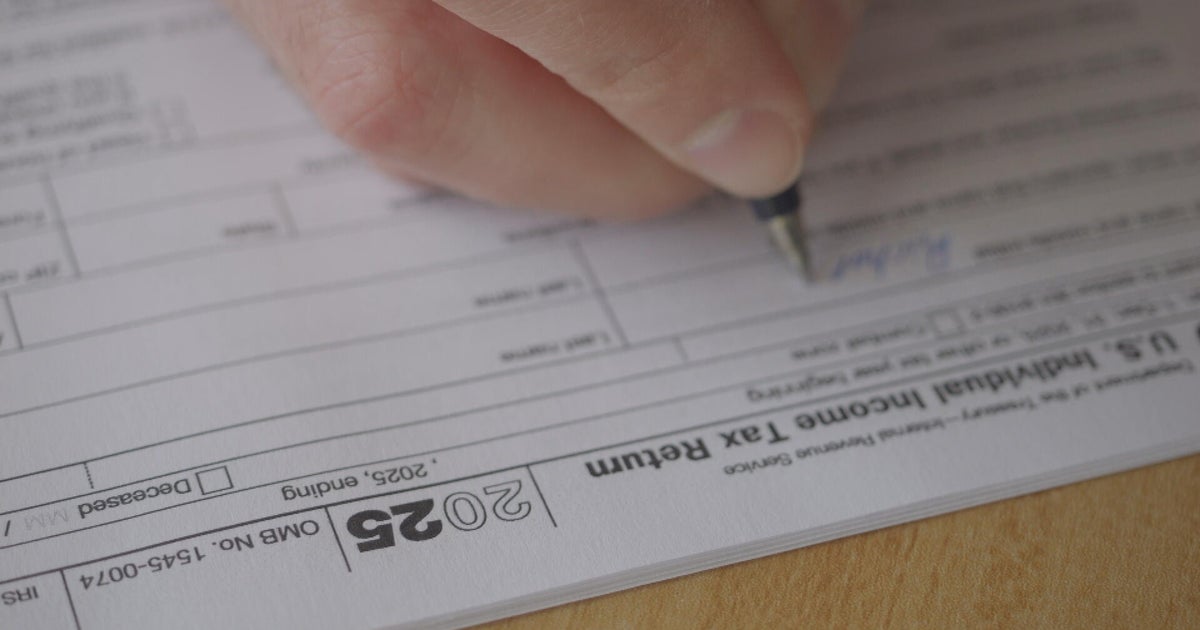Half of S&P 500 report more money for foreign taxes than U.S. taxes
Nearly half of the large U.S. companies that make up the S&P 500-stock index set aside more money to pay foreign taxes in 2020 than they did for payments to the U.S. government — a lot more money.
In all, 241 S&P 500 companies last year earmarked a combined $73 billion for taxes to foreign governments and just $6.7 billion to cover U.S. taxes, according to a CBS MoneyWatch analysis of the companies' regulatory filings and data from financial information firm FactSet. That's a foreign-to-domestic tax ratio of more than 10-to-1.
Globalization explains some of it. Coca-Cola and Caterpillar pay more tax overseas because they now make most of their money outside the U.S. Still others on the list, such as Boeing, Hilton and Pfizer, saw the coronavirus pandemic erase their U.S. profits — and much or even all of their domestic tax bills.
But many of those 241 companies, such as FedEx, General Motors and Nike, made plenty of money last year, and plenty of it was made in the U.S. Yet the company filings suggest they now pay a majority of their taxes elsewhere. Indeed, the relationship between where they make their profits and where they pay their taxes can seem particularly lopsided these days:
- Disney, the global entertainment giant and theme park operator, got nearly 80% of its revenue — and all of its profits — from its U.S. division in the company's latest fiscal year that ended in early October. Yet 75% of the nearly $1 billion Disney expensed for taxes was destined for foreign governments, according to the company's filings.
- Starbucks also makes most of its money in the U.S. The coffee chain set aside three times as much in taxes to foreign governments as it did for federal U.S. income tax last year. According to its most recent financial filing, Starbucks expensed $181 million for tax payments to foreign governments, but just $49 million for U.S. federal income taxes.
- Netflix, for many people a saving grace during the pandemic, expensed $369 million for taxes last year. Only 7% of that was for U.S. federal taxes. Three large domestic tax breaks allowed the company to expense just $24 million for U.S. federal taxes on its $2.8 billion in pretax U.S. profits, for an effective income tax rate of just 0.8% last year.
For decades, U.S. companies shrunk their tax bills by moving operations overseas, sometimes for legitimate business reason. But increasingly it is the U.S. portion of a global company's operations that is getting the best tax treatment.
One major reason for that, experts told CBS MoneyWatch, is Donald Trump's signature Tax Cuts and Jobs Act of 2017, which among other things lowered the country's corporate income tax rate to 21% from 35%.
Proponents of the cuts said the lower tax rates would incentivize companies to bring back more of their operations to the U.S. and pay more in total U.S. taxes as a result. The opposite appears to have happened, the CBS MoneyWatch analysis found.
In 2017, there were 150 companies in the S&P 500 that expensed more for foreign taxes than they did in the U.S. That number has risen steadily since Trump's tax law was enacted. It jumped to 204 in 2018, then to 220 in 2019. The list included an additional 21 companies last year, bring the current tally up to 241.
"Following the enactment of the Tax Cuts and Jobs Act, the U.S. has turned into a tax haven of sort," said Gabriel Zucman, a University of California at Berkeley economist and one of the world's leading experts on corporate tax avoidance. "Many U.S. companies can pay very little in federal taxes."
That so many U.S. companies can appear to be paying so little at home, while paying more to foreign nations, could fuel the growing national debate on whether U.S. companies still pay their fair share of the cost of government. A recent study found more than two dozen profitable companies haven't paid a dollar in U.S. federal income tax since the 2017 tax cut.
This week, the Biden administration introduced a plan to raise what companies pay in federal income taxes by more than $2 trillion over the next decade. A large part of the plan is to hike the official tax rate on corporate profits to 28% from 21%. But President Biden also said he wants to eliminate the incentives companies have to move investments overseas and avoid U.S. taxes. And Treasury Secretary Janet Yellen said this week she is working with other nations to try to establish a global minimum corporate income tax.
A corporate tax mystery
It's impossible to know exactly how much a given company pays in taxes. That's because companies, like individuals, are allowed to keep their tax filings and payments private.
Yet public companies that report their profits to investors also must disclose in a note to their year-end financial filings how much they have put aside to pay in taxes over the next 12 months. They're also required to detail to whom those taxes are likely to be paid, such as the federal government or state or foreign governments.
CBS MoneyWatch looked at that figure — known as the current tax expense — for every company in the S&P 500 for the past five years and compared what those companies had set aside for U.S. taxes versus what they expected to pay in foreign taxes. For a lot of companies, the latter account was considerably larger.
"In terms of figuring out what companies pay in taxes each year, it's the best proxy we have," said Robert Willens, one of Wall Street's leading tax and accounting experts and an adjunct professor of accounting at Columbia University.
Of course, Willens added, "There could be years where companies got some kind of settlement or tax rebate where the current tax expense [noted in the filing] is not what they paid."
A Disney spokesperson said the pandemic hurt the company's businesses last year, resulting in less profit and, as a result, less to owe in taxes. "The amount of federal income taxes we paid [last year] isn't comparable to what we would have seen in a more normal year," the spokesman said in a statement. In the prior three years, Disney said, it paid a total of $12.4 billion in U.S. federal income taxes.
A spokesperson for Starbucks said the company's financial filing, like those of other public companies, does not offer a fully accurate representation of what it actually paid last year in taxes. Starbucks paid over $1.7 billion globally in taxes its most recent fiscal year, the "majority of which was for U.S. federal income taxes," the spokesperson said.
Netflix as case study: a 0.8% federal tax rate last year
The CBS MoneyWatch review of S&P 500 filings illustrates how the corporate tax game is often won at home these days, helped by an accumulation of domestic tax breaks and increasingly generous credits.
Consider Netflix, which declined to comment for this story. The streaming service expensed $369 million for taxes last year, its filings state. But 75% of that was for taxes outside of the U.S. Another 18% of Netflix's tax expenses were for state or local taxes. Just 7% of its overall tax total was set aside for federal income taxes.
Netflix is booming worldwide during the pandemic but it still generates almost all its income in the U.S. — $2.8 billion, or nearly 88%, of its $3.2 billion in pretax profits last year, according to its latest annual financial filing.
Based on those domestic profits, Netflix could have owed roughly $590 million in federal income taxes, given the current U.S. corporate rate of 21%. Netflix likely didn't pay anything close to that. Instead, a variety of tax breaks and credits, passed in recent years by Washington or long blessed by the U.S. tax code, allowed the company to pay far less.
The biggest break came from stock options, which get preferential treatment for tax purposes. That saved Netflix nearly $340 million last year. Next, Netflix reported spending $1.8 billion on technology and development, in turn getting $110 million in federal tax credits. Then there was Trump's corporate tax cut, which allowed Netflix to save an additional $90 million on its IRS bill.
Add up those three breaks, along with a few other small ones, and the result is Netflix expensed just $24 million last year for federal U.S. income taxes. That's an effective tax rate of just 0.8% on its $2.8 billion in U.S. pretax profits.
On the other side of the map, the trail of taxes for Netflix's overseas profits heads north, not south.
Netflix made $400 million in profits in its foreign operations, which, had they been taxed at the U.S. rate of 21%, would have generated an $85 million tax bill for Netflix. Instead, Netflix said in its filing it faces a higher rate of income tax overseas than in the U.S. — an average of 24%, which added $12 million in reported tax expenses in 2020.
In addition, Netflix said a "global corporate simplification" last year resulted in a one-time foreign tax expense of $135 million.
Add those two tax charges, along with some other smaller ones, and Netflix's foreign tax expense for last year reached $277 million, for a hefty effective tax rate of 68% on its $400 million in foreign pre-tax profits.
"The European Union, for one, has done a better job in regulating companies and the income tax rate they pay," said Dean Baker, who co-founded the left-leaning Center for Economic and Policy Research. "The IRS, on the other hand, has mostly looked the other way."



